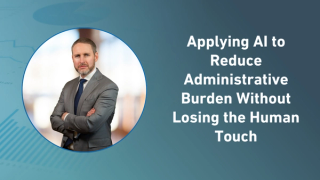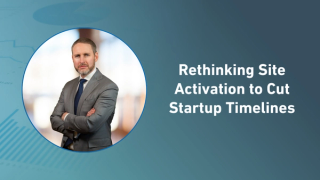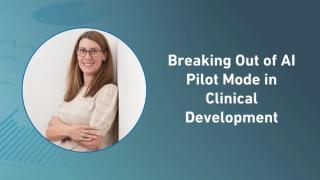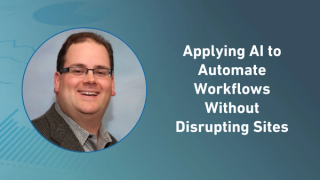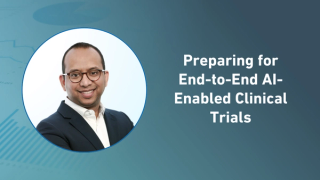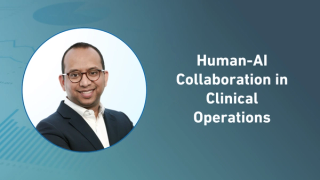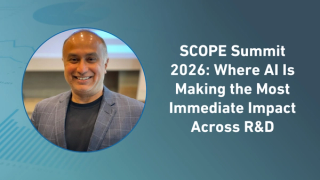
Artificial Intelligence/Machine Learning
Latest News

Latest Videos

Shorts




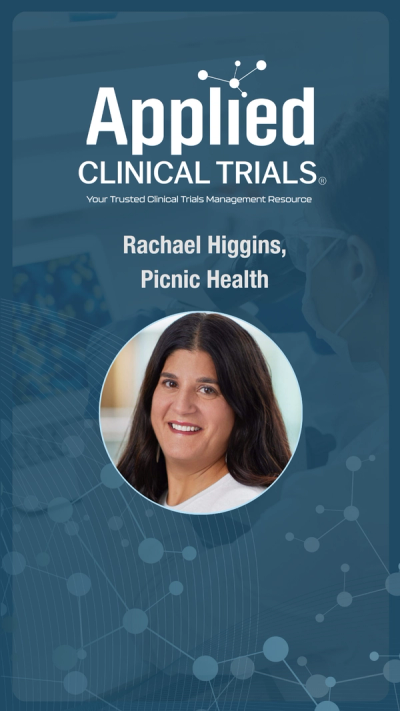
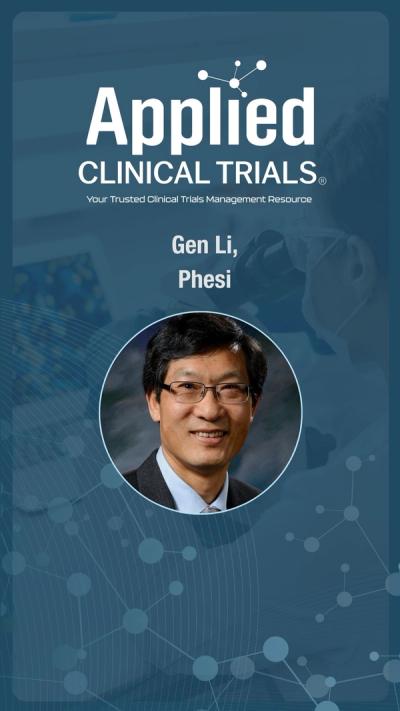

More News

The clinical trial ecosystem is entering a phase of consolidation and reinvention driven by the collapse of boundaries between functions, data, and even companies themselves.

BostonGene has entered a new collaboration with AstraZeneca to apply its foundation AI model to oncology drug development, aiming to improve early trial decision-making around safety, efficacy, and biomarker strategy while accelerating clinical timelines.

New research finds that while eSource adoption is advancing through EHR-to-EDC workflows, scaling its impact will depend on integrating unstructured clinical data using AI, shared standards, and collaborative validation models across sites, sponsors, and vendors.

New data show that applying AI to the migration of translated COAs into eCOA platforms can meaningfully reduce errors, accelerate localization workflows, and support broader global patient participation—while still relying on human reviewers to ensure linguistic precision and clinical integrity.
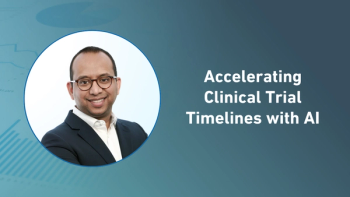
Explore how AI can optimize study design, speed patient recruitment, and streamline operational workflows to shorten development timelines and enhance trial efficiency.

AI-driven discovery, EHR-based real-world evidence, and synthetic patient modeling are rapidly reshaping drug repurposing, reducing development timelines, expanding therapeutic applications, and accelerating regulatory acceptance of computational approaches.

The FDA has introduced a secure, agency-wide agentic AI system to support complex regulatory workflows—enhancing reviews, surveillance, and inspections—while maintaining strict data protections and human oversight.

As clinical trials become more complex and decentralized, the role of the CRA is evolving from site monitor to strategic, digitally fluent partner, requiring expertise in hybrid oversight, risk-based monitoring, and multi-system data management.

As AI adoption accelerates across clinical research, clear distinctions between AI agents, AI teammates, and integrated intelligence are essential for understanding how automation will reshape site operations, workforce roles, and end-to-end study processes.

AI-enabled automation is rapidly moving into routine pharmacovigilance operations, streamlining case intake and processing, reducing longstanding adoption barriers, and driving new efficiencies as sponsors and functional service provider partners scale safety workflows.

Emerging applications of AI/ML, automation, and digitization are helping sponsors cut clinical trial start-up times to as little as four weeks, reduce data errors, and enhance patient engagement—demonstrating how tech-enabled processes are reshaping trial efficiency and experience across the study lifecycle.

Leveraging real-world data and AI-driven insights in clinical trial planning can reduce enrollment failures, improve retention, and prevent costly rescue studies by providing a more accurate view of patient populations and site feasibility.

In 2025, both big pharma and biotech are redefining decision-making as AI, real-world evidence, and flexible deal structures accelerate drug development, flatten organizational silos, and close the innovation gap across the life sciences ecosystem.

Novel trial designs are reshaping clinical development by improving efficiency, reducing redundancies, and accelerating timelines toward a new era of precision medicine.
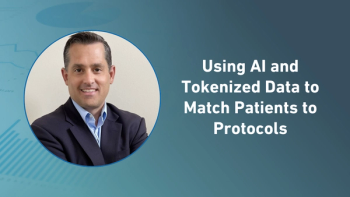
Understand how combining proprietary and real-world datasets with tokenization enables accurate protocol matching while maintaining privacy and compliance.

In a decentralized, digitally enabled clinical trial environment, conventional approaches to data analysis are evolving as sponsors utilize technological tools in new ways to ensure compliance with global standards, mitigate risk, and bring life-changing therapies to patients faster.
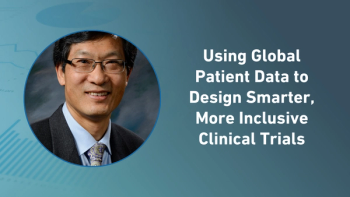
Exploring how large-scale patient databases and AI analytics can accelerate site activation, strengthen recruitment, and improve trial design from the start.

Thermo Fisher will integrate OpenAI APIs into its Accelerator Drug Development platform and clinical research business, while Lundbeck deploys ChatGPT across its global workforce to drive R&D and commercial innovation.

Addressing the imbalance in clinical trial workloads by empowering mid-level investigators and using AI to expand access to high-quality, diverse research leadership.
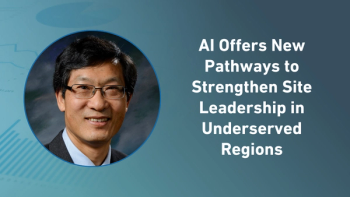
Examining how artificial intelligence can help identify true key opinion leaders in emerging markets to improve site influence, patient engagement, and trial success.
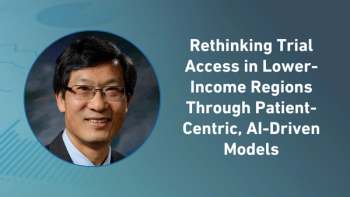
Highlighting how technology and mindset shifts can help expand breast cancer research leadership beyond high-income countries and build more inclusive global trial networks.

Medidata deepens its collaboration with Sanofi to advance AI-enabled clinical development, while BioRender joins forces with Anthropic to power visual communication within Claude for Life Sciences.

Revisit top insights from SCOPE Summit 2025, where industry leaders explored how artificial intelligence is reshaping trial risk management and how pragmatic study designs are bridging the gap between clinical research and real-world care.

How a unified approach to clinical data management, powered by artificial intelligence and advanced analytics, can elevate clinical trial monitoring and redefine how teams assess, act on and learn from data.

As pharma wrestles with whether to trust fully autonomous AI, semi-autonomous agents are emerging as a safer middle ground that reduces manual work, eliminates white space in clinical development, and accelerates trial timelines without compromising patient safety.





